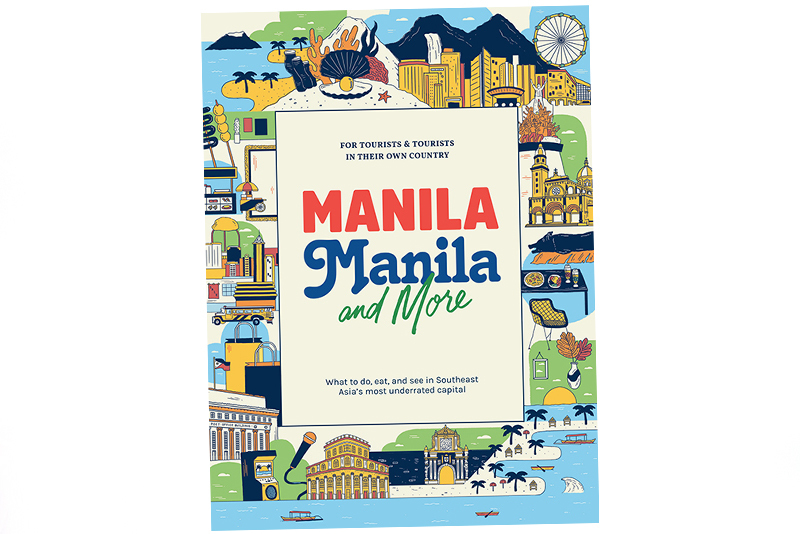Why Manila is still the 'Pearl of the Orient'

This new guide book makes a case for our country's infamous capital.
(The following is an excerpt from Manila, Manila, and More, a guide to Manila that aims to take you through the vibrant streets and tangled histories of Southeast Asia’s most underrated capital. Released by Made of Bricks, the editor and publisher Raymond Ang’s editorial imprint, under Summit Books, Manila, Manila, and More is available in National Bookstore, Powerbooks, and all major bookstores nationwide for P395.)
MANILA, Philippines — In Manila, no one hurries,” Harper’s Bazaar said in 1963. “The city has an aura that says — ‘enjoy your day’ — and I should do just that… The tropical beauty of the islands, the intensity of its night life and social whirl, the hospital and gaiety of its people — all these combine to make a visit to the Philippines a delight.” When the international fashion magazine wrote about Manila in 1963, the city was portrayed as a kind of tropical paradise, a must-visit for the American traveler on the lookout for the next big thing in travel.
Today, Manila is a city regarded as just something you pass through on the way to the Philippines’ world-renowned beaches — at least that’s what most international travel guides will tell you. One of the busiest and most urbanized places in the world, Metro Manila is dense and busy, tricky to navigate and easy to get lost in. It’s a far cry from the freewheeling tropical paradise Bazaar wrote about in 1963.
By the time the international fashion magazine wrote about the city as a kind of tropical paradise in the early ’60s, Manila had already gone through a few lifetimes.

Art by Neal P. Corpus
Named after the nilad plant, a flowering mangrove plant that grew on the shores of the Manila Bay, Manila was the seat of the Spanish government when it gained sovereignty over the Philippine Islands in 1565, becoming the center of trade between Manila and Acapulco. Over 200 years later, in 1762, it was occupied by Great Britain for two years as part of the Seven Years’ War. And in 1898, Manila was turned over by Spain to the United States in accordance with the Treaty of Paris, which effectively ended the Spanish-American War.
During World War II, most of Manila was destroyed, earning the grim distinction of becoming the war’s second-most-destroyed city after Warsaw, Poland. After the war, the City of Manila underwent “the Golden Age,” and extensive revitalization efforts earned it the moniker “Pearl of the Orient.”
“The history of Manila can be put in three words: challenge and response,” the great Filipino writer Nick Joaquin wrote in his 1990 book Manila, My Manila. “It almost seems as if every problem, every crisis, arises just to prove the aliveness of this city: continually destroyed and continually rebuilt, ever decaying and ever re-greening.”
A few years ago, Manila was regarded as an up-and-coming Asian megacity, due to the influx of foreign investments, the buzz from the tourism industry, positive PR from talented Filipinos making it on the world stage, and an administration that seemed determined to stamp out corruption. Today, most of that sheen has rubbed off due to an increasingly controversial administration and a political culture that seems to have gone back to old habits.
When it was tagged “Pearl of the Orient” in the ’50s, Manila was known as Southeast Asia’s beautiful and progressive hidden gem. Today, that moniker stands up for the city in a different way: Getting to the heart of it sometimes feels like prying a pearl from a tightly-wound shell.
Manila has always been politically volatile and while Manileños — and Filipinos — have been disappointed by one politician after another, some things never change: the people are unfailingly warm, the spirit is unswervingly tenacious, and Manila will always get back on its feet.















